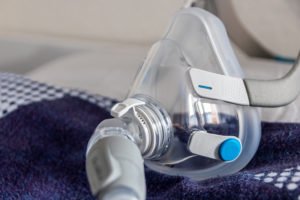The following recalled Philips CPAPs, BiPAPs, and mechanical ventilators are the subject of a mass torts lawsuit for causing such side effects as respiratory illness, organ damage, or possibly cancer:
| Type of Philips device (made from 2009 to April 29, 2021) |
Recalled models (all serial numbers) |
| Continuous Ventilator, Minimum Ventilatory Support, Facility Use | |
| Continuous Ventilator, Non-life Supporting |
|
| Noncontinuous Ventilator |
|
| Continuous Ventilator |
|
| Continuous Ventilator, Minimum Ventilatory Support, Facility Use |
|
| Continuous Ventilator, Non-life Supporting |
|
Shouse Law Group is pursuing settlements for victims injured by the recalled Philips sleep apnea devices. In this article, our CPAP attorneys answer the following frequently-asked-questions:
- 1. When did the Philips recall happen?
- 2. Why were the devices recalled?
- 3. What are the side effects?
- 4. What are the grounds for a lawsuit?
- 5. Are the lawsuits individual or class action?
- 6. How big will the settlements be?
- 7. What should I do if my Philips sleep apnea device was recalled?
1. When did the Philips recall happen?
On June 14, 2021, Philips voluntarily recalled the above-listed sleep apnea devices that were made between 2009 and April 26, 2021.1
2. Why were the devices recalled?
The recalled Philips sleep apnea devices have sound abatement foam liners made out of PE-PUR (polyester-based polyurethane). There are reports of this PE-PUR foam disintegrating. And the patients wearing these devices are then ingesting these particles and/or inhaling the toxic vapors that PE-PUR is off-gassing.
With regard to the DreamStation 1, an FDA inspection showed that it emitted dangerous levels of the carcinogen formaldehyde.2
3. What are the side effects?
Users of the recalled Philips sleep apnea devices are reporting such side effects and complications as cancer, respiratory problems, and organ damage – including liver and kidney damage.3

The Philips sleep apnea device recall extends to millions of CPAPs, BiPAPs, and ventilators
4. What are the grounds for a lawsuit?
Victims of Philips recalled sleep apnea devices are suing the manufacturer for:
- Defective design;
- Manufacturing defect;
- Failure to warn;
- Consumer fraud / deceptive trade practices; and
- Fraudulent concealment.
In short, Philips could have safely designed its CPAPs, BiPAPs, and ventilators so that the sound abatement foam was insulated. And by failing to warn doctors and patients about the risk of foam degradation and off-gassing, Philips deprived sleep apnea victims of making an informed choice about their treatment.
5. Are the lawsuits individual or class action?
Victims are filing lawsuits against Philips individually, but these lawsuits are consolidating into a federal MDL (multi-district litigation). Similar to class action lawsuits, MDLs help to streamline the litigation and settlement procedures. But contrary to class actions, MDLs permit each plaintiff’s case to remain separate. Therefore, every plaintiff’s settlement will depend on his/her specific injuries.
The Philips CPAP MDL was created in the U.S. District Court, Western District of Pennsylvania. The presiding judge is the Honorable Joy Flowers Conti. The name of the MDL is In Re: Philips Recalled CPAP, BI-LEVEL PAP, and Mechanical Ventilator Products Liability Litigation (MDL # 3014). And as of December 1, 2021, there are 127 cases in the MDL. But it is anticipated that tens of thousands more will join the MDL.4
6. How big will the settlements be?
Plaintiffs’ attorneys are fighting for six-figure payouts – or higher – for victims of Philips’ recalled sleep apnea devices. Settlements would include compensatory damages for:
- Past and anticipated future medical expenses;
- Lost wages from being too ill to work;
- Loss of future earnings from being too ill to work;
- Pain and suffering; and/or
- Other economic losses
In matters that reach trial, judges can also award punitive damages – which are often much higher than compensatory damages – to punish Philips for any malicious or egregious behavior.
7. What should I do if my Philips sleep apnea device was recalled?
People using a recalled Philips CPAP, BiPAP or mechanical ventilator should first contact their healthcare provider about how to proceed and for guidance on how to replace their device with a safe one. Patients can also contact their insurance provider for information about what replacement devices are covered by their plan.
With regard to recalled first-generation DreamStation devices, Philips has been given regulatory clearance to replace their defective sound abatement foam. For further information and directions, go to the Philips Device Recall Notification page or call Philips at (877) 907-7508. But make sure not to sign anything releasing Philips of legal liability.
Legal References
- Philips issues recall notification* to mitigate potential health risks related to the sound abatement foam component in certain sleep and respiratory care devices, Philips News Center (June 14, 2021). Philips Respironics Recalls Certain Continuous and Non-Continuous Ventilators, including CPAP and BiPAP, Due to Risk of Exposure to Debris and Chemical, FDA (“[class 1 is] the most serious type of recall. Use of these devices may cause serious injuries or death.”).
- Same.
- Same. Joshua Brockman, Breathing Machine Recall Over Possible Cancer Risk Leaves Millions Scrambling for Substitutes, New York Times (August 17, 2021). Katie Gibson, Philips recalls ventilators and sleep apnea CPAP machines over cancer concerns, CBSNews (June 15, 2021).
- In re: Philips Recalled CPAP, Bi-Level PAP, and Ventilator Litigation, Motion for Transfer and Coordination or Consolidation under 28 USC 1407, Eastern District of Pennsylvania, MDL 3014. (Filed July 7, 2021).
